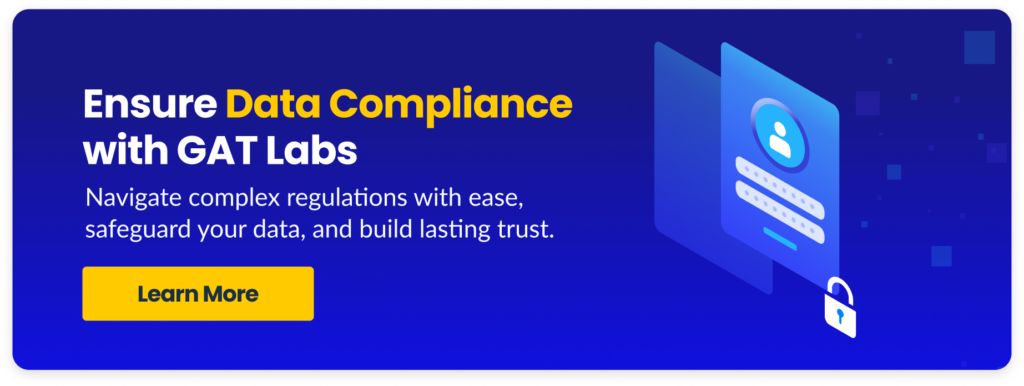The Health Insurance Portability and Accountability Act (HIPAA) is a U.S. federal law that mandates the protection of individuals’ medical records and other personal health information (PHI). If your business handles patient data, understanding HIPAA is important.
Key Things Businesses Need to Know About HIPAA
HIPAA applies to a wide range of entities, including healthcare providers, health plans, and healthcare clearinghouses, as well as their business associates who handle PHI.
Key Components of HIPAA
1. Privacy Rule
- ▪️ Purpose: Establishes standards to protect individuals’ medical records and other personal health information.
- ▪️ Requirements: Limits the use and disclosure of PHI without patient authorisation and provides patients with rights to access and request corrections to their health information.
2. Security Rule
- ▪️ Purpose: Sets standards for the protection of electronic PHI (ePHI).
- ▪️ Requirements: Mandates administrative, physical, and technical safeguards to ensure the confidentiality, integrity, and security of ePHI.
3. Breach Notification Rule
- ▪️ Purpose: Requires covered entities and business associates to notify affected individuals, the Department of Health and Human Services (HHS), and, in some cases, the media of a breach of unsecured PHI.
- ▪️ Requirements: Notifications must be made without unreasonable delay and no later than 60 days after the discovery of the breach.
Key Requirements for HIPAA Compliance
✔️ Administrative Safeguards
- ▪️ Risk Analysis and Management: Conduct regular risk assessments to identify vulnerabilities and implement measures to mitigate risks to ePHI.
- ▪️ Training and Policies: Develop and implement HIPAA-compliant policies and procedures, and provide ongoing training to employees.
✔️ Physical Safeguards
- ▪️ Access Controls: Implement measures to limit physical access to facilities where ePHI is stored or processed.
- ▪️ Workstation Security: Ensure workstations and devices that access ePHI are used and positioned to prevent unauthorized access.
✔️ Technical Safeguards
- ▪️ Access Control: Implement technical policies and procedures to allow only authorized individuals to access ePHI.
- ▪️ Encryption and Decryption: Use encryption to protect ePHI during transmission and storage.
What are the HIPAA Compliance Rules?
HIPAA compliance involves adhering to three key rules:
1. Privacy Rule
- ▪️ Focus on Patient Control: Grants patients more control over their health information, allowing them to request and obtain copies of their medical records and make corrections.
- ▪️ Sets Boundaries on Use and Disclosure: Limits how healthcare entities can use and disclose PHI, requiring patient authorisation for most uses and disclosures.
- ▪️ Requires Safeguards: Mandates implementing safeguards like access controls, data encryption, and employee training to protect PHI from unauthorised access.
2. Security Rule
- ▪️Protects Electronic Health Information (ePHI): Addresses the security of ePHI, not paper records.
- ▪️ Defines Safeguard Areas: Policies and procedures for managing ePHI, including risk assessments, security awareness training, and incident response plans.
- ▪️ Physical Safeguards: Physical security measures to protect ePHI, like restricting access to data centres and securing devices.
- ▪️ Technical Safeguards: Technical controls like access controls, encryption, and audit trails to protect ePHI in digital form.
- ▪️ Overall Goals: Ensure the confidentiality, integrity, and availability of ePHI, protect against threats, prevent unauthorised use or disclosure, and ensure compliance by employees and contractors.
3. Breach Notification Rule
- ▪️ Defines Breach Response Procedures: Outlines steps organisations must take if they suspect a data breach involving ePHI, including conducting a risk assessment to determine the impact and scope of the breach. Notifications must be sent without unreasonable delay and no later than 60 days after discovery.
Why Should Businesses Care About HIPAA Compliance?
- Protecting Patient Privacy: Ensuring HIPAA compliance helps protect patients’ sensitive health information from unauthorised access and disclosure.
- Avoiding Penalties: Non-compliance with HIPAA can result in substantial fines and legal consequences. Penalties can range from $100 to $50,000 per violation, with a maximum annual penalty of $1.5 million.
- Maintaining Trust: HIPAA safeguards patient privacy and fosters trust in the healthcare system. By complying with HIPAA, businesses demonstrate their commitment to protecting sensitive patient information.
- Mitigating Risks: HIPAA violations can lead to costly data breaches. Implementing robust security measures as part of HIPAA compliance helps mitigate these risks.
- Competitive Advantage: In today’s competitive healthcare landscape, demonstrating a strong commitment to patient data security can provide a competitive edge when attracting patients and business partners.
Taking Steps Towards HIPAA Compliance
HIPAA compliance requires a multi-faceted approach. Here are some key steps businesses can take:
- ▪️ Conduct a HIPAA Risk Assessment: Identify potential risks and vulnerabilities in your data handling practices.
- ▪️ Develop and Implement HIPAA Policies and Procedures: Establish clear policies outlining how PHI is collected, stored, accessed, and disposed of. These policies should be readily accessible and communicated to employees.
- ▪️ Employee Training: Train all employees who handle PHI on HIPAA regulations and your organisation’s specific data security procedures.
- ▪️ Implement Security Measures: Take steps to secure PHI, such as encrypting data, using strong passwords, and restricting access to authorised personnel only.
- ▪️ Regular Audits and Monitoring: Conduct periodic audits of your HIPAA compliance program and monitor for potential breaches.

HIPAA Compliance with GAT Labs
GAT Labs offers a suite of tools to help businesses achieve and maintain HIPAA compliance.
Our solutions assist with:
- ✔️ Access Controls: Manage and restrict access to PHI based on the principle of least privilege.
- ✔️ Data Encryption: Ensure sensitive information remains secure both at rest and in transit.
- ✔️ Audit Trails: Maintain comprehensive logs of user activity and data access for auditing purposes.
- ✔️ Data Loss Prevention: Prevent accidental or unauthorised disclosure of PHI.
- ✔️ Incident Response: Establish a plan for responding to data breaches in a timely and efficient manner.
By implementing GAT Labs’ solutions alongside your HIPAA compliance program, you can build a robust data security framework that protects patient information and safeguards your business.
Insights That Matter. In Your Inbox.
Join our newsletter for practical tips on managing, securing, and getting the most out of Google Workspace, designed with Admins and IT teams in mind.







